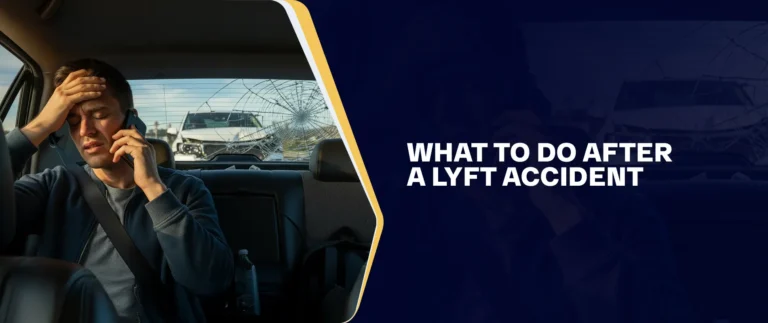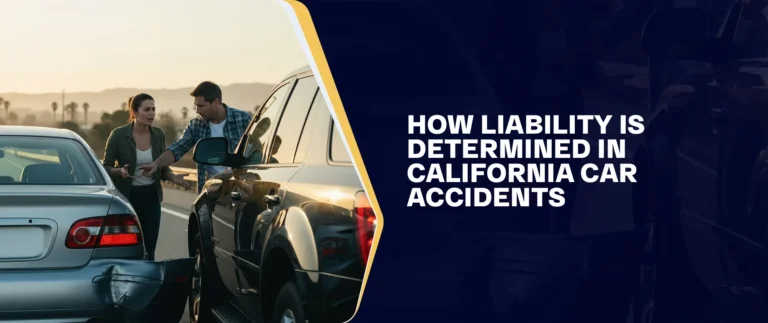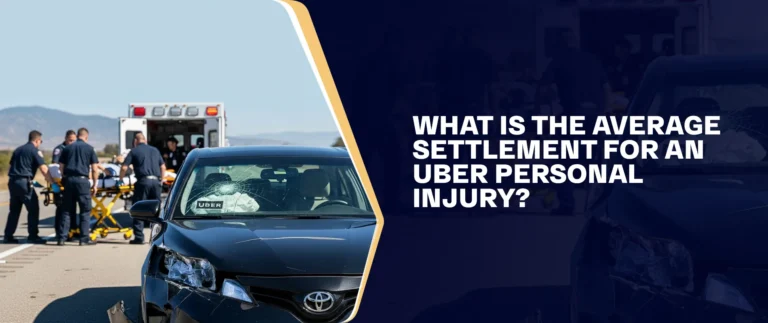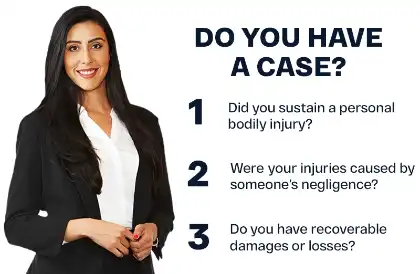Table of Contents
Stress can change how we drive. It affects focus, reaction time, and decision-making behind the wheel. When stress builds up, it can lead to risky driving habits that put everyone on the road in danger.
Recognizing how stress affects driving helps you stay alert and avoid dangerous situations.
When under stress, drivers may experience:
- Cognitive Overload — You might forget directions, miss signs, or make poor decisions because your mind is overwhelmed.
- Delayed Reactions — Stress slows reflexes, making it harder to stop or turn in time.
- Tunnel Vision — You may not notice nearby vehicles, signs, or pedestrians.
- Aggression or Panic — Stress can trigger road rage or cause you to freeze when quick thinking is needed.
- Physical Symptoms — You might feel tense, tired, nauseated, or mentally foggy, making it harder to stay focused.
Recent studies show a strong link between stress and car accidents. The AAA Foundation for Traffic Safety found that aggressive driving plays a role in many fatal crashes. Stress makes those behaviors more likely and more dangerous, especially in tough road conditions.
If a stressed or aggressive driver caused your crash, you may have legal options. Call (888) 488-1391 for a free initial consultation with our car accident lawyers.
Potential Sources Of Stress That Affect Driving
Stress is your body’s natural response to perceived threats, triggering a “fight or flight” reaction, which can be helpful in other situations but harmful when behind the wheel. It may build up from the following factors:
- Internal Stressors — Internal stress from your personal life rides with you, even if no one else is in the car. You might not notice them initially, but they affect how you think, react, and drive. Here are a few examples:
- Work, finances, family issues.
- Anxiety or fear.
- Displaced anger
- Lack of sleep.
- Pressure to multitask or “perform.”
- External Stressors — These come from outside situations while you’re driving. They add pressure, frustration, or distraction. Common examples include:
- Heavy traffic.
- Dangerous road conditions.
- Getting lost or running late.
- Backseat drivers.
- Loud music or a buzzing phone.
Internal stress becomes more dangerous when combined with road pressures. Even calm drivers can act out when they’re tired, running late, or dealing with aggressive drivers. That mix of pressure raises the risk of poor decisions and accidents.
Behavioral Signs Of A Stressed Driver
Stress often shows in how someone drives before they even realize they’re affected. You may notice warning signs in yourself or others. Recognizing these behaviors early can help you stay alert and avoid danger on the road.
These behaviors may come from internal pressure, like anger or anxiety, or outside stress, like bad traffic or running late. To help lower the risk of a car crash involving stressed drivers, consider watching out for these signs:
- Speeding or weaving through traffic.
- Obnoxious honking or flashing headlights.
- Yelling or making rude gestures.
- Tailgating or brake-checking.
- Aggressive or hostile actions.
These reckless actions can lead to different motor vehicle crashes, such as:
- 18-wheeler accidents
- Bicycle incidents
- Big rig collisions
- Bus crashes
- Food delivery accidents
- Pedestrian accidents
- Motorcycle collisions
- Rideshare crashes (E.g., Lyft & Uber).
- Truck accidents
- Scooter incidents
If you’re injured in any of these accidents, you may want to consult a car accident lawyer to explore your options.
Tips To Reduce Stress For Safer Driving
You may not be able to control traffic or life’s stressors, but you can manage how they affect your driving. These simple habits can help you stay calm and focused behind the wheel:
- Leave Earlier Than Needed — Starting early reduces the pressure to rush and lowers anxiety about being late.
- Listen to Calming Music — Soothing sounds can help regulate your breathing, heart rate, and mood.
- Put Your Phone on Silent Mode — Fewer distractions help you stay alert and avoid unnecessary stress.
- Use Breathing Techniques — Deep breathing can reset your nervous system. Try the 4-4-8 method:
- Inhale for 4 seconds.
- Hold for 4 seconds.
- Exhale for 8 seconds.
- Take a Break If You Are Overwhelmed — If stress builds up, pull over safely. A few minutes to breathe, rest, or refocus can make a big difference.
- Maintain Your Vehicle — Keeping your car in good shape helps you avoid unexpected problems that could cause stress or danger.
- Recognize Your Limits — Don’t drive if you feel too upset, exhausted, or distracted. It’s okay to wait or ask someone else to take the wheel.
Compensation For Car Accident Victims
After a crash caused by a stressed driver, the aftermath can be challenging, physically, emotionally, and financially. Understanding your rights can help you make informed decisions about your case and seek compensation for the losses you have incurred.
Here are the common types of compensation available in a car accident claim:
- Medical Expenses — Covers emergency care, hospital bills, rehab, medications, and any ongoing treatment related to your injuries.
- Lost Income — If your injuries force you to miss work or reduce your hours, you may be able to pursue compensation for wages or lost earning potential.
- Property Damage — Pays for the repair or replacement of your vehicle and other personal property damaged in the crash.
- Pain and Suffering — Compensation for physical pain, emotional distress, and the impact on your daily life.
In rare cases, punitive damages may apply. These aim to punish drivers who act recklessly, like in road rage or aggressive behavior caused by stress.
Each case is different, and the value of your claim depends on the details of the incident and the extent of your damages.
Is A Stressed Driver Liable For An Accident They Caused?
A stressed driver can be held liable for an accident they caused, depending on the specifics of the circumstances. Stress doesn’t excuse reckless driving. If someone causes a crash because they lost control emotionally, they can still be held legally responsible.
Car accident attorneys can help demonstrate that the other driver’s stress-related behavior meets the legal standard for negligence, which includes:
- Duty of Care — The driver has a legal responsibility to drive safely.
- Breach of Duty — The driver acted carelessly or aggressively.
- Causation — Their behavior directly caused the crash.
- Damages — You suffered physical, emotional, or financial harm.
More than one party may share the blame. In California, the rule of comparative negligence means you can still pursue damages, even if you were partially at fault. Your compensation may simply be reduced based on your percentage of responsibility.
Our lawyers who handle car accident cases will conduct a thorough investigation and carefully examine the details of your situation. That way, we can build a case showing how the other driver’s stress-related actions led to the crash.
When Can Emotional Distress Be Part Of My Claim?
You may be able to include emotional distress in your personal injury case if:
- The distress came from someone’s negligent or reckless actions.
- You experienced fear, anxiety, or trauma from the incident.
- You suffered physical injuries or severe emotional symptoms.
- You were directly involved in the crash or nearby (known as the “zone of danger” rule).
Even if you didn’t visit the hospital after the crash, you can still speak to a personal injury attorney. Symptoms like nightmares, panic attacks, or depression are valid signs of emotional trauma.
Documenting the effects of a stress-related crash takes strong medical evidence. That includes both physical injuries and mental health issues like anxiety, depression, or PTSD.
Medical professionals can help show how the accident affected your body and mind, giving a full picture of your damages.
How Can Lawyers Support Me After A Traffic Accident?
A crash doesn’t just hurt your body; it can affect your sense of safety, your sleep, and your peace of mind. That’s why our lawyers for car accidents look beyond the physical injuries. We take time to understand how the crash impacted your life.
When you talk, we listen. Then, we act. A skilled California accident lawyer can:
- Review your medical reports, therapy notes, and any signs of emotional trauma.
- Connect you with medical and mental health experts when needed.
- Gather details to build a case that reflects the damage you sustained, physically and emotionally.
- Work to pursue compensation for losses, including your pain and suffering, if applicable to your case.
Emotional distress may not often leave visible scars, but it can have a significant impact on your quality of life. If stress played any part in your crash or is making recovery harder, our lawyers for accident cases are prepared to walk you through your legal options with care and focus.
Common Questions After A Driving Accident
It’s normal to feel uncertain after a crash. You might wonder how to file a claim, how long you have to act, or whether emotional distress counts as part of your case. Below are the answers to some common questions.
If you have any other concerns or require additional information, please contact Arash Law. Our qualified accident attorneys are ready to provide comprehensive legal support. Your first consultation is free.
Do Personal Injury Cases Cover Emotional Distress?
You may be able to include emotional distress in a personal injury claim, even if you don’t have severe physical injuries. Many people suffer from anxiety, nightmares, or a fear of driving after a crash. These are valid symptoms and may be considered in your claim for compensation, depending on the specific situation.
Even PTSD or depression may count, as long as they result from the accident. An accident lawyer can collect therapy notes, medical records, and expert opinions to demonstrate how the crash affected your mental health.
How Much Time Do I Have To File A Car Accident Lawsuit In California?
In most cases, you have two years from the date of the crash to file a personal injury lawsuit in California. This is called the statute of limitations.
However, there are some exceptions to this two-year window, such as:
- Your claim involves a government vehicle or agency.
- The person causing the crash is out of state or hiding.
- The victim was a minor when the collision occurred.
- The injured person is mentally incapacitated and can’t file on their own.
If you’re wondering, “Do I need a personal injury lawyer to help me through this?”, you may consider consulting a lawyer who handles cases involving personal injuries to review your situation. We can explain how much time you have and what to do next.
What Should I Do After A Stress-Related Crash To Protect My Legal Rights?
Your actions after the accident can significantly affect your legal case. If you’re safe and able, consider following these steps to protect your rights and support your claim:
- Stay calm and assess yourself for injuries before checking if anyone else is hurt.
- Call 911 to report the accident.
- Document the scene. Take photos of the cars, the road, and any injuries.
- Seek immediate medical help. Even if you feel okay, stress and injuries can show up later.
- Write down what happened. Include how you were feeling before and after the crash.
- Avoid discussing fault. Just stick to the facts.
- Talk to a car accident lawyer. They can explain your options and help you take the next step.
Even a small mistake after a collision can affect your claim later. If unsure what to do, fill out our “Do I Have A Case?” form to schedule a free initial consultation with our accident lawyers to discuss your case.
Learn About Your Legal Rights After A Car Accident
When someone else’s stress or aggression behind the wheel risks your safety, the impact can last long after the crash. You might be dealing with pain or fear and searching for free accident lawyer advice.
Our accident attorneys offer a free initial consultation to discuss your case. We take the time to hear your side, understand how the crash affected you, and advocate for your rights. We represent clients throughout California and can meet with you at your convenience, anywhere in the state. Call our car crash attorneys at (888) 488-1391 for a free initial consultation.












